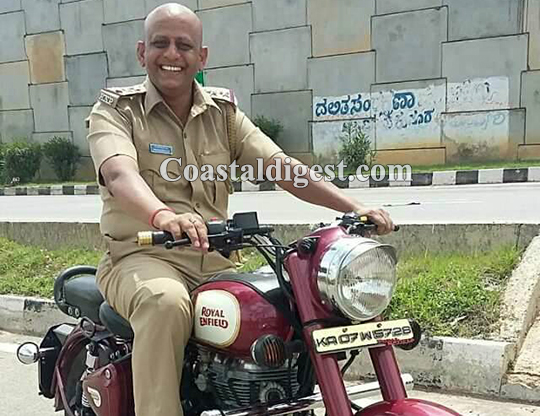Davangere, Jan 15: Karnataka Chief Minister B S Yediyurappa on January 14 threatened to resign when the seer of 'Panchamasali Guru Peetha' warned that the community will leave him, if a BJP MLA from the community is not made the minister during the upcoming cabinet expansion.
The chief minister, who is awaiting the BJP high command's nod to expand his cabinet, amid intense lobbying by the aspirants, wanted the seer Vachanananda swamiji and the 'Panchamasali' community to understand his "situation." Yediyurappa pointed out that he has come to power because of the Congress-JD(S) legislators who rebelled against the then coalition government.
The incident took place when Vachanananda swamiji, while addressing an event at Harihara, near here, said "chief minister, you are a good person, Murugesh Nirani (BJP MLA)has helped you a lot, he has stood by you..if you leave his hands this time, the united Panchamasali community will leave your hands." As the swamiji was making this statement, Yediyurappa, who was seated next to him, rose and threatened to leave the stage.
"If you speak like this I will go away...what are you speaking...kindly pardon me, I will leave, you should not speak like this, if you speak like this I can't work..you can give me suggestions, you cannot threaten me," he said, as the swamiji tried to convince Yediyurappa and asked him to take his seat.
As Yediyurappa acceded to his request, the seer said he was not threatening him but was putting forward the rights of the community. The chief minister, who was visibly upset, was seen talking to Home minister Basavaraj Bommai next to him, who even tried to convince the seer not to continue with the topic. Nirani, a MLA from Bilgi who was Industries minister in the previous Yediyurappa government, was seated on the stage when the incident occurred.
Later addressing the event, Yediyurappa said he was not "selfish" and was even ready to resign.
"Vachanananda swamiji has spoken, through you I request him to understand my situation also. If 17 legislators (Congress-JDS), few even as ministers, had not resigned and stayed away, Yediyurappa could not have occupied this Chief Minister position.
You (swamiji) need not make people raise their hands on any demand, if you tell me, I'm ready to listen to you," he said.
Stating that he was ready to take suggestions from the swamiji on all issues, including on how to run the administration for the next 3 years, Yediyurappa said "I'm ready to bow my head and listen to it, if you don't want I'm even ready to resign and go home, I'm not someone who wants to stick to the chair."
Further noting that if he says that the financial condition of the state is not good it will become headline in papers tomorrow, he said he will have to wait till March for the situation to improve.
"I dont have selfishness, I'm aware that if the Panchamasali-Lingayat community had not stood by me, I could have not sat on this chair (CM)... but kindly understand my situation also," he added.
Yediyurappa is expected to expand his ministry later this month after discussing with BJP national president Amit Shah during his visit to the state on January 18.
As the chief minister has already made it clear that 11 of the disqualified JDS-Congress MLAs who got re-elected in the bypolls on BJP tickets will be made ministers, lobbying has been on within the party for the remaining ministerial berths.
Currently there are 18 Ministers, including the chief minister in the cabinet that has a sanctioned strength of 34.
The cabinet expansion will not be an easy task for the chief minister as he will have to strike a balance by accommodating the victorious disqualified legislators as promised and also make place for the old guard, upset at being "neglected" in the first round of the induction exercise.
He also has to give adequate representation to various castes and regions in his cabinet and also deal with allocation of key portfolios.







Comments
Easy way to escape from all karmas done previously!
committing suicide is not a solution for any problems....he should have faced it instead...it looks like he was not daring....not fit for police job...
RIP. If those supposed to protect others kill themselves, then what about common people?
What's going on in our state. Farmers suicide not stopped. Now police also started commiting suicide. who will find solution?
Ganapathi suicide and this shows the clear view of corrupt politics of congress.
now bjp goondas will start blaming congress!
seriously this is going ugly and must be stopped. we are loosing good officers like ganapathi. politicians like K G George must be sent out of the country.
In congress ruled Karnataka there is no place for sincere police officers. One killer minister was recently re inducted into cabinet.
Add new comment